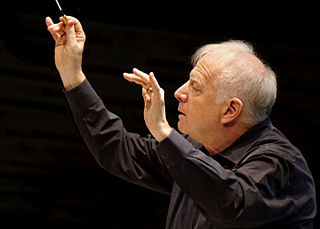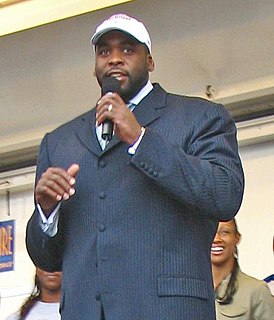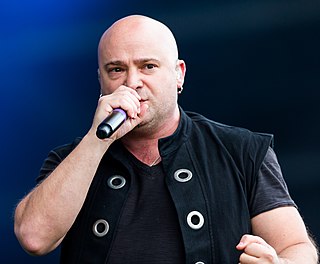A Quote by Grace Lee Boggs
I think of what's happening in Detroit as part of something that's much bigger. Most people think of the decline of the city as having to do with African-Americans and being in debt, and all the issues like crime and bad housing. But what happened is that when globalization took place, following World War II, Detroit's role as the center and the symbol of industrialization was destroyed. It wasn't because we had black citizens mainly or a black mayor; it was because the world was changing.
Quote Topics
African
African-American
Bad
Because
Being
Bigger
Black
Center
Changing
Citizens
City
Crime
Debt
Decline
Destroyed
Detroit
Following
Globalization
Had
Happened
Happening
Having
Housing
Industrialization
Issues
Like
Mainly
Mayor
Most
Much
Part
People
Place
Role
Something
Symbol
Think
Took
War
World
World War
World War I
World War II
Related Quotes
I don't think there has been any mayor in America scrutinized that way. I don't think there has been any mayor as a matter of fact, Coleman Young I think received an incredible amount of scrutiny and he was kind of the poster child for that in Detroit. He was the first Black mayor who really expressed his manhood in a different way than had been seen from African-American man that was projected across the country.
Being a resident of the city and spending most of my time in the city, I've always been perplexed with how people could say there's nothing to do and nothing going on in Detroit, and how could you raise your family in Detroit. My reality is that I hang around with some of the most interesting creative people in the world, people doing things that could only be done in Detroit.
As a black person on the outside, because there's so much black art and so much of black people's work circulating, so many people imitating what black people do, you would think that there'd be more black people on the business side. It didn't cross my mind that every label head, for the most part, is a white guy.
In one sense, I have always felt glad to have had the war [World War II] in my childhood, because, as a result, nothing that has happened in the world since then has ever seemed quite so bad. On the other hand, I never entirely got over my feeling of being cheated when the promised era of peace in a wonderful "post-war world" failed to materialize. I could not understand how, after all that, people could ever even think of fighting again. And I still can't.
I think in many ways, the Spanish Civil War was the first battle of World War II. After all, where else in the world at this point did you have Americans in uniform who were being bombed by Nazi planes four years before the U.S. entered World War II? Hitler and Mussolini jumped in on the side of Francisco Franco and his Spanish nationalists, sent them vast amounts of military aid, airplanes, tanks - and Mussolini sent 80,000 ground troops as well - because they wanted a sympathetic ally in power. So I think it really was the opening act of World War II.
Many White people are not sensitive to the kind of abuse that African Americans, especially younger African Americans, receive at the hands of police officers and police departments. I think for most Whites their experience with the police has been good or neutral because they don't interact with the police as much as those in the Black community.
The Obama administration seems to be following what might be called 'the Detroit pattern increasing taxes, harassing businesses, and pandering to unions. In the short run, it got mayors re-elected. In the long-run, it reduced Detroit from a thriving city to an economic disaster area, whose population was cut in half, as its most productive citizens fled.































